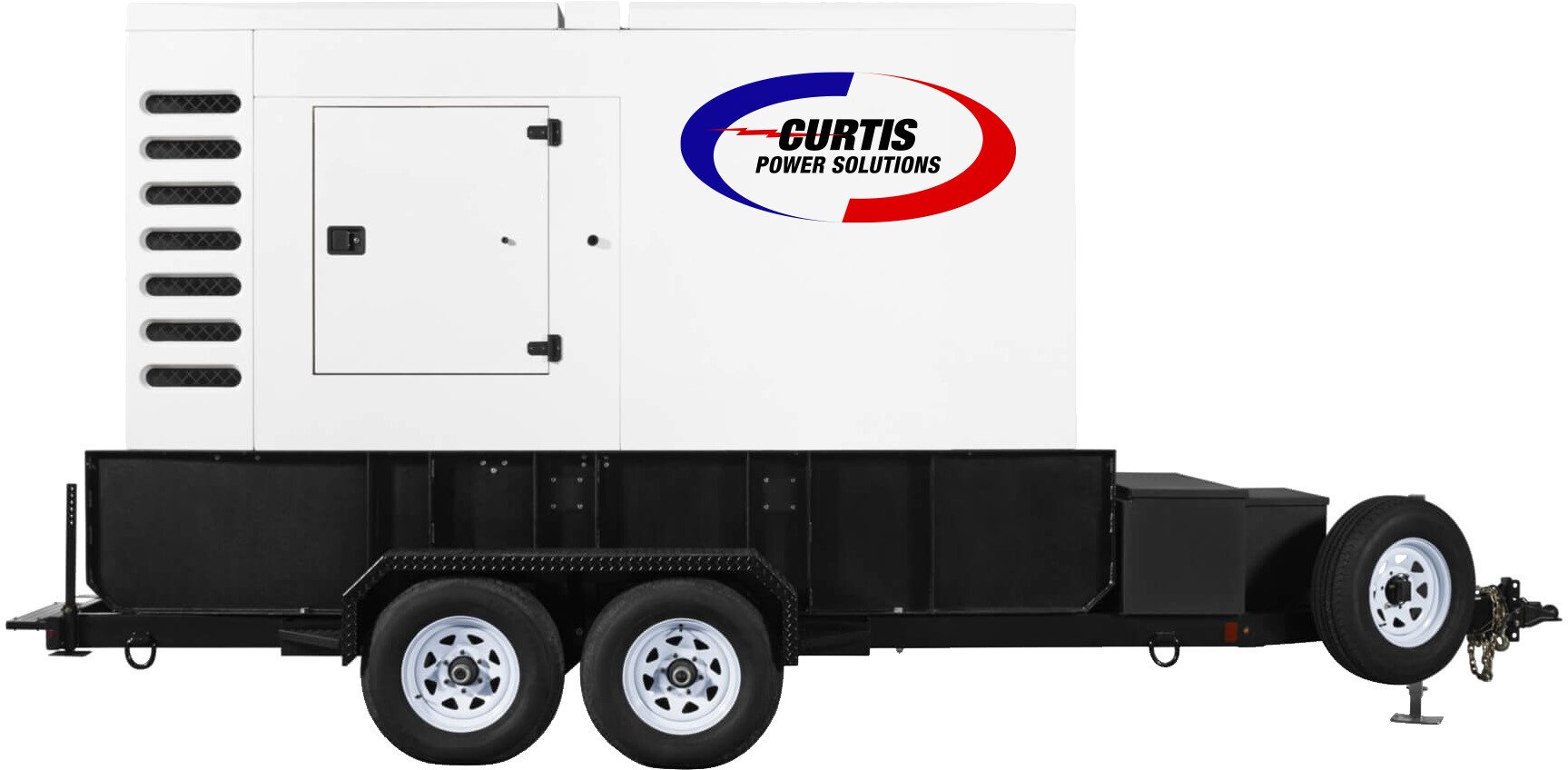



GENERATOR
80 kW Generator Rental
Contact Us For Pricing
- Prime Power Rating 80 kW
- Standby (Backup) Rating ~88 kW
- Frequency 50 Hz / 60 Hz (selectable / per region)
- Voltage 208 / 240 / 480 V (3-phase)
- Phase 3-phase
- Fuel Type Diesel
- Enclosure Weatherproof sound-attenuated container
Overview
The 80 kW Generator Rental from Curtis Power Solutions delivers dependable performance for both prime and standby applications. Designed for versatility, it is well-suited for construction projects, industrial operations, commercial facilities, and event power. Each unit is housed in a rugged, weatherproof, and sound-attenuated enclosure, ensuring quiet and reliable operation in demanding environments. With flexible voltage options, advanced digital controls, and built-in safety features, this generator integrates seamlessly into your power system. Backed by Curtis Power Solutions’ trusted rental service, you can count on professional delivery, setup, and support tailored to your project needs.
Specifications
Specification |
Details |
| Performance | Prime: 80 kW, Standby: 88 kW, PF: 0.8 lag |
| Engine & Fuel | Diesel, liquid-cooled, 300–500 L fuel tank |
| Electrical | 208/240/480 V, 3-phase, 50/60 Hz |
| Alternator | Brushless, synchronous, ±1 % voltage regulation |
| Control | Digital controller, overload & under/over voltage protection |
| Sound & Safety | ≤ 75 dB(A), compliant with NFPA & local codes |
| Connections | Terminal box, camlocks, optional breaker panels |
Safety information
- Always ensure the generator is installed on a stable, level, and non-combustible surface.
- Maintain proper clearance (minimum recommended: 1 m on all sides) for ventilation and servicing.
- Use appropriate PPE (hard hat, ear protection, gloves) when operating or servicing the unit.
- Only trained, authorized personnel should start, stop, or service the generator.
- Never operate the generator in enclosed or poorly ventilated areas (risk of exhaust gas / CO poisoning).
- Ensure proper grounding (earthing) in accordance with NFPA and local codes to avoid electrical hazards.
- Use fuel only from approved containers; avoid spills and remove ignition sources.
- Shut down the generator and isolate circuits before performing maintenance or inspections.
- Do not overload the generator beyond its rated capacity.
- Regularly inspect hoses, belts, wiring, and connections for wear, damage, or leaks.
.png?width=159&height=72&name=Curtis%20Power%20Solutions%20(RGB).png)





